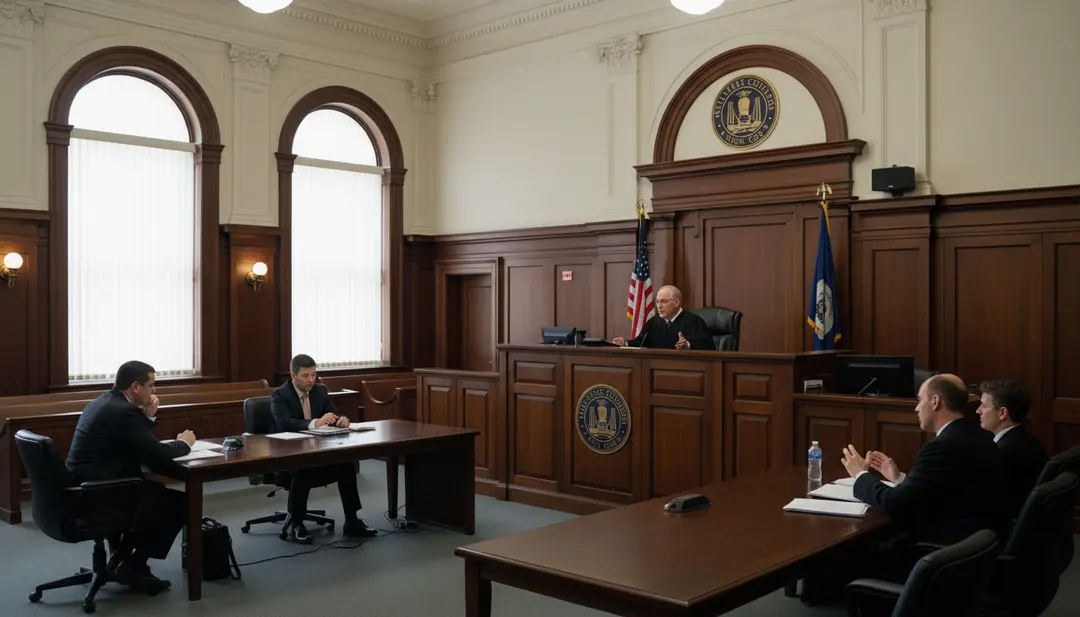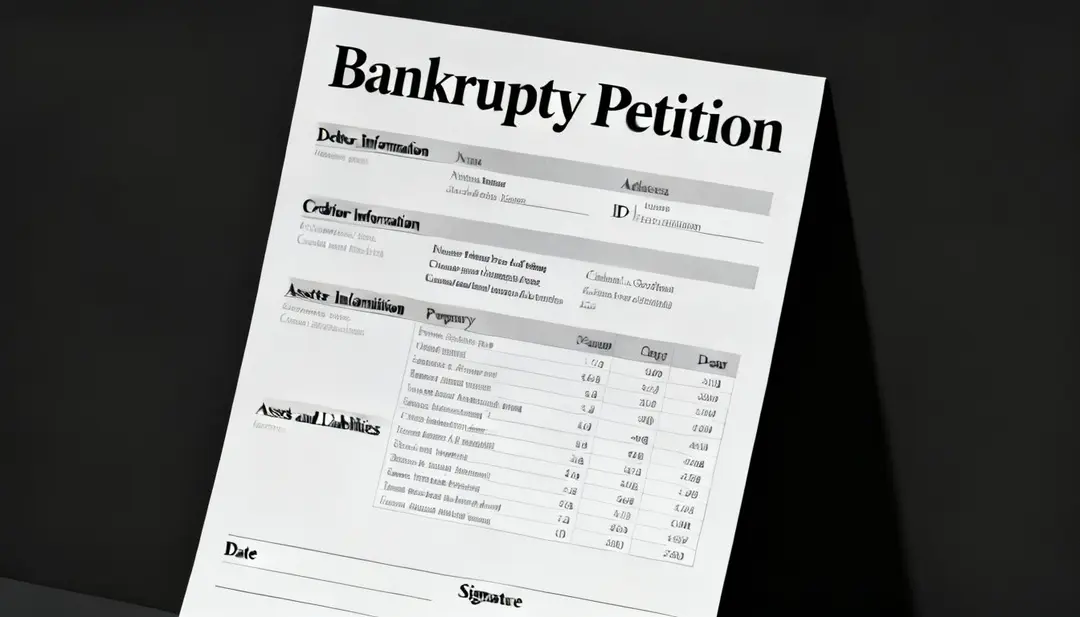Fines for Landscaping Violations in Arizona HOAs: What Boards Need to Know [2025]
Managing curb appeal and outdoor spaces is a major responsibility for Arizona HOAs. Communities across both cities and suburbs rely on clear landscaping standards to protect property values and community pride. Fines for landscaping violations are the main way these standards are enforced when rules are ignored or neglected.
If you serve on a board, understanding the rules and penalties helps you protect your association and treat residents fairly. Penalties must follow Arizona law, your governing documents, and accepted best practices. At Halk, Oetinger, and Brown, our team includes seasoned Arizona HOA Attorneys with practical solutions, whether you’re in Phoenix, Tucson, or anywhere statewide.
With our flat-rate legal counsel, you receive affordable guidance for all community needs—covenant enforcement, collections, and more. For deeper insight, view the Arizona HOA fines guide to see what sets effective enforcement apart.
How Landscaping Rules Are Established in Arizona HOAs
Every HOA in Arizona sets landscaping rules to create a consistent look and feel throughout the community. These standards maintain property values and help everyone enjoy the benefits of well-kept surroundings. Because outdoor space is such a visible part of any neighborhood, boards and committees put time and care into these regulations. If you’re an HOA board member or manager, knowing how these rules are created — and how they’re enforced — gives you the confidence to handle fines for landscaping violations the right way.
Common Landscaping Requirements and Prohibited Actions
Arizona’s climate and water concerns shape most HOA landscaping rules. Your HOA likely outlines specific requirements to keep yards both attractive and environmentally responsible.
Common requirements include:
- Yard Maintenance: Homeowners must keep lawns trimmed, shrubs pruned, and trees healthy. Neglected yards attract attention fast.
- Approved Plant Types: HOAs may require native or drought-tolerant plants to conserve water. Grass lawns might be limited, especially in areas like Phoenix and Tucson.
- Watering Restrictions: During droughts or city water restrictions, rules on irrigation timing or frequency are common.
- Decorative Elements: Some HOAs restrict decorative rocks, statues, fountains, or colored gravel. Any feature that stands out might need board approval.
- Weed and Pest Control: Prompt removal of weeds is usually mandatory. Overgrown weeds and obvious neglect often result in quick citations.
- Tree Heights and Location: Certain communities set limits on how tall trees can grow or restrict tree types to prevent root or view problems.
- Consistent Appearance: Any modifications — from adding artificial turf to placing patio furniture in yards — may require written approval.
Rules tend to be strict in communities with a uniform look, such as planned subdivisions or condominium complexes with shared green spaces. Areas near the front entrance or main streets usually face the toughest scrutiny, as curb appeal directly affects everyone’s property values.
The Role of the Board and Committees in Rule Enforcement
Effective enforcement of landscaping standards relies on the teamwork of your board and any established landscaping or architectural review committees. These groups, often made up of volunteer homeowners, monitor compliance and keep communication channels open.
Here’s how rule enforcement typically works:
- Routine Inspections: Boards or committees walk the community, checking for violations. Many HOAs do this monthly or quarterly.
- Documented Notices: If a violation is found, the association sends a written notice describing the issue, a deadline to correct it, and the potential fines for landscaping violations if ignored.
- Resident Input: Residents can ask for clarification, submit landscaping plans for approval, or request extensions if needed.
- Consistent Follow-Up: Committees track unresolved issues. If owners don’t respond, associations escalate notice letters and may apply fines.
- Appeals Process: Most HOAs allow homeowners to contest alleged violations. This keeps the enforcement process fair and legally compliant.
Boards and committees rely on clear procedures and strong documentation to defend their actions. Consistency is key — every homeowner should be treated the same. If you want to enhance your board’s response, Understanding the Role of HOA Committees in Arizona offers detailed tips on committee effectiveness and routine operations.
Transparency, communication, and flexibility turn tense situations into problem-solving opportunities. When combined with advice from a trusted Arizona HOA Attorney or even a Phoenix HOA Lawyer or Tucson HOA Attorney, you’ll have the tools needed for fair rule enforcement and better community outcomes.
Fines for Landscaping Violations: What Arizona Law Requires
Arizona law places clear guardrails on how HOAs set and collect fines for landscaping violations. If you’re involved in running an association—whether as a board member or manager—you carry the responsibility to apply these rules fairly and avoid excessive penalties. Boards that follow Arizona statutes and stick to proven processes avoid unnecessary disputes, gain community trust, and keep property values high.
Defining Reasonable Fines: Avoiding Excessive Penalties
To protect both homeowners and the reputation of the HOA, fines for landscaping violations must be “reasonable” under Arizona state law. That means penalties need to make sense for the situation and shouldn’t feel like punishment just for the sake of it.
What does a reasonable fine look like?
- Proportionate to Violation: A $25 or $50 fine for missing one mowing or trimming session is considered reasonable. By contrast, a $500 fine for a first offense, like a single overgrown bush, is out of proportion and likely to draw legal scrutiny.
- Consistent Application: Uniform fines create clarity for all residents. You don’t want a scenario where one household is fined $100 for weeds, while a neighbor with the same issue gets a warning instead.
- No Surprise ‘Gotchas’: Fines posted in your association’s CC&Rs or enforcement policy carry more weight. Surprise or hidden penalties undermine trust and may not stand up if contested.
Arizona law expects boards to keep fines fair. Disproportionate penalties often lead to conflict, potential legal exposure, and sometimes litigation. For board members seeking practical advice, the Arizona HOA fines guide details what makes a fine enforceable, helping you avoid missteps. An experienced Arizona HOA Attorney, or even a Phoenix HOA Lawyer or Tucson HOA Attorney, can also help boards review their policy to match community needs while staying within the law.
The Notice and Cure Process for Violations
Arizona law gives homeowners important procedural rights before any fine is imposed. The process is designed to promote compliance—not just collect money. Following these steps can help avoid escalation and prove fair treatment if you’re ever challenged.
Here’s what boards and managers need to know:
- Written Notice: HOAs must send a written warning that clearly states the nature of the violation. This letter must specify what’s wrong (for example, “overgrown weeds in the front yard”) and which rule it breaks.
- Reasonable Time to Cure: The law says owners must be given a chance to fix (or “cure”) the violation before a fine is assessed. Your CC&Rs should spell out a standard time frame, often 10 to 30 days, depending on the issue.
- Right to Respond or Contest: Homeowners have the right to contact the association, contest the citation, or request more time if there are barriers to compliance (such as illness or travel).
- Apply Fines Only After This Process: Fines for landscaping violations should only be imposed if the homeowner doesn’t address the concern within the allowed period or refuses to cooperate.
Documenting every step—from sending the notice to applying fines—protects both the community and the board. A clear system for enforcement and recordkeeping makes resolution easier and less stressful, both for the HOA and the homeowner.
For a step-by-step guide on effective procedures, including sending notices, allowing time to remedy, and documenting board actions, you can review strategies for how Arizona HOA board members can create and maintain effective covenant enforcement. This ensures your process is transparent, consistent, and in line with what courts expect from fair HOA management.
Best Practices for Boards: Enforcing Landscaping Violations Fairly
Fair and consistent enforcement is the backbone of any effective Arizona HOA. If you want to avoid conflict, keep property values stable, and give homeowners confidence in your leadership, the way you handle fines for landscaping violations matters. With Arizona statutes and your CC&Rs guiding the process, paying attention to recordkeeping and communication helps keep everything on track and defensible. Taking these steps not only shields your association from unnecessary disputes but also builds lasting trust within your community.
Documenting Violations and Fines: Advise on Keeping Accurate Records and Correspondence
Recordkeeping isn’t just paperwork—it’s your best defense if a dispute arises over fines for landscaping violations. As a board or manager, you should maintain a clear, organized log of every inspection, notice, and communication. Detailed records demonstrate to homeowners (and courts, if it goes that far) that the board treats everyone fairly, follows due process, and applies the rules consistently.
When documenting landscaping violations and related fines, stick to these habits:
- Photograph the Violation: Take photos with a date stamp to visually support your written reports. Images show the issue without room for debate.
- Keep Written Notices: Save copies of warning letters and any correspondence sent to the homeowner. Clearly state the problem, cite the relevant rule, and set a correction deadline.
- Log All Communication: Track every call, email, or in-person conversation about the violation. Record the homeowner’s response and any promises or requests made.
- Update After Resolution or Fine Payment: Make a note of when the violation is resolved or when a fine is paid, so your records are complete.
- Store Records Securely: Use digital or cloud storage when possible for quick access and backup. Organized files help if you need to retrieve documentation later.
Accurate records protect you from claims of bias or unfairness. They also show that your Arizona HOA Attorney, Phoenix HOA Lawyer, or Tucson HOA Attorney can defend the board’s actions, should the need arise. For more tips on documentation and enforcement, check out these Improving HOA Rule Compliance Tips.
Effective Strategies for Resolving Disputes
Even with detailed documentation, disputes over fines for landscaping violations can pop up. Addressing these disagreements swiftly and fairly keeps small issues from escalating and prevents costly litigation. A clear process puts everyone on the same page and demonstrates the board’s commitment to transparency.
Take these steps when a homeowner challenges a landscaping violation or fine:
- Acknowledge Concerns Promptly: Respond quickly when a homeowner reaches out. Let them know you’ve received their appeal, and outline what comes next.
- Review the Details: Go over your documentation and listen to the homeowner’s side. Make sure all facts and circumstances are considered.
- Encourage Open Dialogue: If the owner has unique circumstances (like illness or temporary hardship), see if a compromise can be reached. Flexibility within the rules can resolve many disagreements.
- Clearly Explain the Appeals Process: Walk the homeowner through how to formally contest the violation. Give them a timeline for decisions.
- Ensure Impartial Decision-Making: Appeals should be reviewed by a committee or third party, not just the person who issued the fine.
- Put All Outcomes in Writing: Once a resolution is reached, send a letter confirming the result. Keep a copy in your records.
- Stay Consistent and Respectful: Apply the same procedures to every homeowner to avoid claims of favoritism.
A thoughtful approach reduces the chance of disputes spiraling into lawsuits. Still, misunderstandings can sometimes lead to legal actions. To understand the risks and stay prepared, read about the Common HOA Litigation Issues in Arizona.
By sticking to best practices, consulting with your Arizona HOA Attorney, and fostering clear communication, you help promote a positive atmosphere in your community—even when dealing with tough enforcement situations.
Local Regulations and HOA Authority
Arizona HOAs must walk a careful line between enforcing landscaping standards and respecting homeowner rights protected by state and local law. Not every fine or rule an association writes is automatically enforceable—Arizona statutes and even city ordinances can limit what you can require or how you impose fines for landscaping violations. Understanding the relationship between local regulations and HOA authority is essential if you want to keep enforcement legal and fair.
Balancing State Laws and HOA Rules: Explore scenarios where local law may protect owners or restrict HOA authority, offering real examples
The authority of Arizona HOAs comes from two primary sources: the association’s own governing documents and state statutes. Sometimes these rules fit together seamlessly, but when they clash, Arizona law or municipal code can override HOA regulations.
Typical situations where state law may step in:
- Water Conservation Regulations: With water scarcity a serious issue, Arizona cities and counties occasionally set strict guidelines that limit how much HOAs can restrict drought-resistant landscaping. For example, if your HOA fines a homeowner for installing artificial turf, but city law protects water-friendly landscaping, your fine may not stand.
- Rights to Native Plants: Arizona’s Native Plant Protection laws sometimes supersede HOA rules. If a board demands the removal of protected native trees or cacti and issues a fine for noncompliance, the homeowner may have state protection—even if your bylaws suggest otherwise.
- Fair Housing Requirements: Some local or state laws are designed to ensure accessibility or prevent housing discrimination. Attempts to fine residents for certain yard modifications, like wheelchair ramps or assistive landscaping features, may violate fair housing rules.
A real-world example:
A Phoenix HOA once issued recurring fines for a resident’s use of xeriscaping—low-water landscaping using native plants. City ordinances, however, encourage this practice and prohibit HOAs from banning it outright. The HOA had to rescind the fines and rewrite its rules.
Get familiar with your city’s specific landscaping codes and Arizona’s state statutes. This awareness helps you avoid issuing fines that could lead to legal disputes or force your HOA to backtrack. Whenever rules seem to conflict, consult an experienced Arizona HOA Attorney, a Phoenix HOA Lawyer, or a Tucson HOA Attorney to examine where your association’s authority ends and state or local law begins.
If you want a comprehensive look at essential Arizona HOA rules and how they interplay with broader regulations, you’ll benefit from this Arizona HOAs overview. This resource makes the sometimes-murky rules around fines for landscaping violations clearer and gives you tools to minimize risk.
Paying attention to local ordinances, recent Arizona law changes, and your governing documents ensures your HOA walks the right path. This is how you treat homeowners fairly and keep community enforcement on solid, legal ground.
Frequently Asked Questions about Fines for Landscaping Violations
If you’re managing or on the board of an Arizona HOA, you’ll notice many of the same questions come up about fines for landscaping violations. Addressing these questions with clear, direct answers builds trust, keeps communication smooth, and helps you avoid unnecessary frustration. Here, you’ll find straightforward responses to the issues you most often face.
What Types of Landscaping Violations Can Incur Fines?
A wide range of issues can trigger fines in Arizona HOAs. Boards aim to keep the community looking neat and uniform, so common violations include:
- Letting weeds or grass overgrow.
- Allowing dead plants, trees, or debris to accumulate.
- Using unapproved plants or materials.
- Ignoring watering restrictions.
- Placing decorations or structures without approval.
- Failing to replace dead landscaping in a timely manner.
Everything hinges on your HOA’s governing documents. Stick to what your CC&Rs and rules say—you can’t fine a homeowner for something that isn’t clearly outlined. For more about clearly documenting violations, see strategies for HOA compliance challenges in Arizona.
How Much Can an HOA Fine for Landscaping Violations?
Arizona law requires fines to be reasonable and in line with the violation’s seriousness. Typical amounts range from $25 to $100 per violation or per day for ongoing issues. Excessive penalties can backfire, leading to disputes or legal challenges. Always follow your association’s published fee schedule. Escalating fines must be justified, documented, and applied consistently to avoid claims of discrimination or favoritism.
What’s the Process Before a Fine Is Imposed?
Due process is a must. Before fining, the HOA must:
- Send a written notice describing the violation.
- Give a clear deadline for fixing the issue, usually 10 to 30 days.
- Offer the homeowner a chance to respond, request an extension, or contest the violation.
A fine is only imposed if the deadline passes without resolution. Detailed templates can help simplify this, as shown in Templates for Arizona HOAs.
Can Homeowners Dispute a Fine?
Yes. Owners have the right to contest fines for landscaping violations. The most effective way is in writing, requesting a hearing if needed. Most HOAs provide a formal process for review. Document every step, listen objectively, and resolve the matter fairly. Bringing in an experienced Arizona HOA Attorney, a Phoenix HOA Lawyer, or a Tucson HOA Attorney can help keep the process on track.
How Are Fines Collected If Unpaid?
Unpaid fines, if valid, are typically added to the homeowner’s account. If ignored long-term, the HOA may pursue additional collection remedies. In some cases, a lien may be placed on the property. While Arizona law restricts some types of liens for fines alone, associations often use alternative legal and financial strategies for collections. For hands-on guidance, review these Improve HOA Assessment Collections approaches to stay compliant and effective.
Do Local Regulations Affect HOA Landscaping Fines?
Definitely. Arizona cities and counties can enforce laws that impact landscaping regulations and override HOA rules. Water conservation, protected plants, and accessibility features may all apply. If your fine conflicts with local or state ordinance, the HOA often has to defer to government law. Regularly review and update community policies so you don’t run into enforcement problems. For more on this, read about the Impact of local regulations on Arizona HOAs.
These answers give you a solid foundation to address the main questions about fines for landscaping violations in your Arizona HOA. With strong policies and clear communication—and the support of seasoned legal professionals at Halk, Oetinger, and Brown—you’re set up for smoother enforcement and fewer conflicts.
Conclusion
Fines for landscaping violations require clear rules, fair notice, and careful documentation. When you stay consistent, rely on state law, and keep enforcement proportionate, you protect your community and avoid conflict. Prudent recordkeeping and regular policy reviews help your board maintain trust with homeowners while reducing legal risks.
The attorneys at Halk, Oetinger, and Brown offer practical support for every step — from drafting fine schedules to addressing disputes and defending your actions. With flat-rate billing and a focus on real solutions, you get transparent and cost-effective guidance. Whether you need an experienced Arizona HOA Attorney, a Phoenix HOA Lawyer, or advice navigating local compliance, our team stands ready to help you serve your community well.
Review your approach regularly and don’t hesitate to seek tailored general counsel for HOA compliance if issues arise. By enforcing rules thoughtfully, you support a thriving, attractive neighborhood. Thank you for taking the time to strengthen your HOA’s leadership—your commitment supports everyone’s investment and peace of mind.













